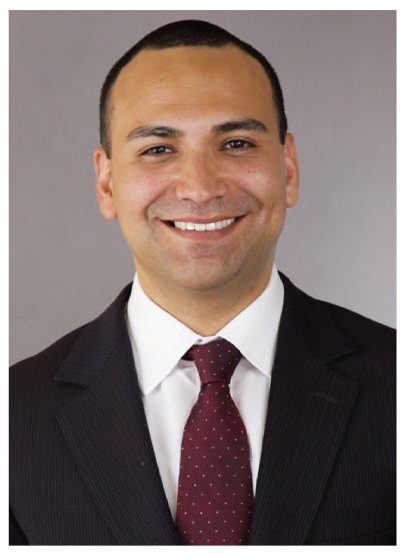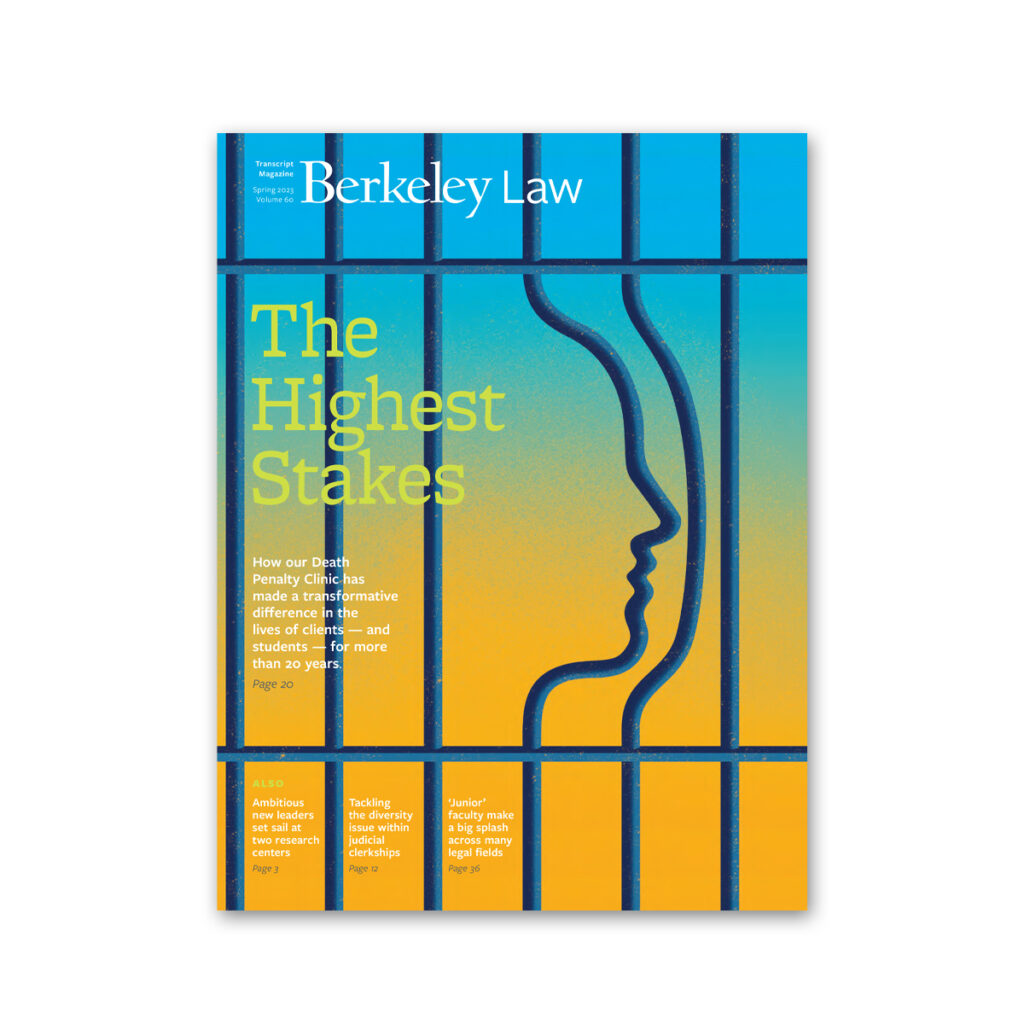
Raised in South Central Los Angeles, Zavala took issue with the death penalty at an early age after seeing “the racial disparities of whom it’s applied to and the fact that numerous people have been found innocent after being sentenced.” He believes all people are capable of personal transformation, and should not solely be judged by the worst thing they’ve ever done.
“The Death Penalty Clinic is one of the main reasons I attended Berkeley Law,” Zavala says. “I knew I wanted to join, to learn about death penalty litigation, and to better understand how I could be an advocate for the abolition of capital punishment.”
Leading his own Los Angeles civil rights firm for the past 10 years, he now focuses on wrongful convictions, police brutality cases, prison litigation, and movement lawyering — work that also includes incarceration reform efforts and promoting Indigenous peoples’ rights.
“The clinic was key in enhancing my practice as I embraced the importance of treating each client as a human being, and the importance that everyone deserves justice no matter what they’ve done in the past,” Zavala says.
He has led legal training sessions in the U.S. and Mexico on incarceration alternatives, which elevate restorative justice and trauma-informed approaches to enhance community safety and reduce the prison population. Zavala also provides direct services to deportees, helping them reintegrate into society after serving long prison sentences and confront adverse childhood experiences to lower recidivism rates.
An experienced negotiator, Zavala has delivered seven-figure settlements and other great results for clients from across California, including victims of police abuse and negligent wrongful death actions. He has also successfully represented organizations on myriad legal issues, including employment and complex immigration matters, and serves as general counsel for several small businesses and nonprofits.
Even now, he calls on the lessons of visiting a clinic client on death row. During one meeting, the client was tearful about missing his daughter’s teenage years and losing out on memorable moments such as teaching her how to drive. “It reminded me of the humanity of incarcerated people despite being in such a dark place,” Zavala says.
Active in many pro bono cases and a member of various nonprofit boards, he finds clinic work important because it affords law students invaluable experience that pays long-range dividends.
“In the Death Penalty Clinic context, it really allowed me to advocate on behalf of real clients — in cases with real-life consequences — while developing my lawyering skills in an area of the law I was passionate about,” he says.
Zavala still carries that passion today, and tries to model it as the leader of his firm. It’s a lesson he took from Semel, who also served as his writing requirement faculty supervisor and provided insightful feedback on his paper about dismantling gang databases because of racial biases.
“Lis was an unwavering advocate for her clients and her commitment to justice was admirable and inspirational,” Zavala says. “I was always impressed by her compassion toward our clients despite them being accused of such serious crimes. She was also an excellent teacher and mentor.”
This article was originally published by Berkeley Law and written by Andrew Cohen.

